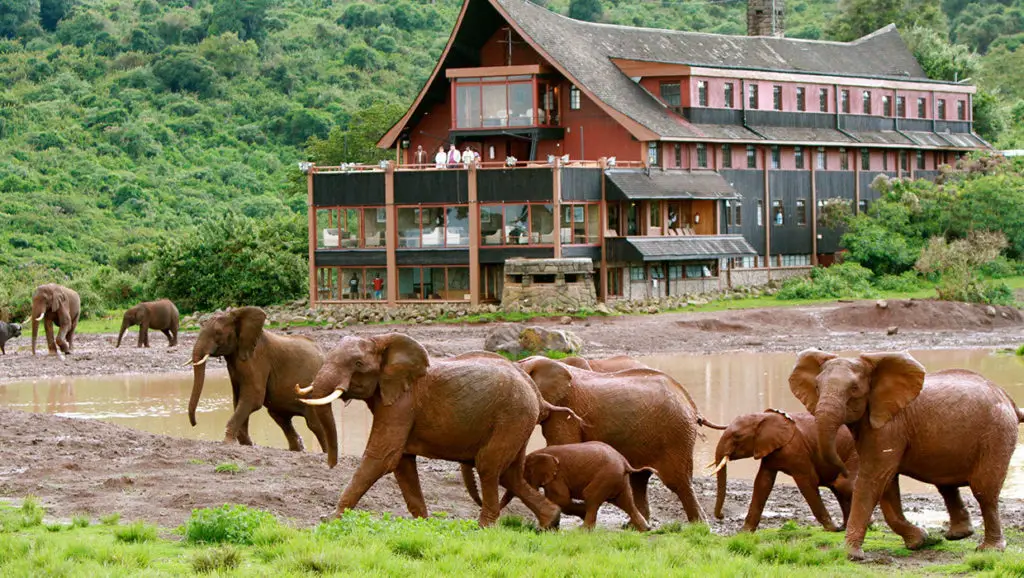Busia Town, located on the Kenya-Uganda border, is a vibrant economic hub characterized by diverse economic activities. The town’s economy is primarily driven by cross-border trade, agriculture, small-scale industries, and service sectors.
As a key entry point between Kenya and Uganda, Busia plays a crucial role in regional commerce and serves as a significant contributor to both local and national economies.
What is the primary economic activity in Busia Town?
The primary economic activity in Busia Town is cross-border trade. This includes:
- Import and export of goods between Kenya and Uganda
- Customs and clearance services
- Currency exchange
- Transportation and logistics
- Wholesale and retail trade of imported and exported goods
The border crossing facilitates significant daily trade volumes, making it a cornerstone of Busia’s economy.
How significant is agriculture in Busia’s economy?
Agriculture is a major contributor to Busia’s economy:
- Main crops: Maize, cassava, sorghum, millet, sweet potatoes
- Cash crops: Sugarcane, tobacco, cotton
- Livestock: Cattle, goats, poultry
- Fishing: Lake Victoria and local rivers support a fishing industry
Agriculture provides both subsistence and commercial opportunities for local residents.
What role does small-scale industry play in Busia?
Small-scale industries form an important part of Busia’s economic landscape:
- Food processing: Grain milling, oil extraction, bakeries
- Textile and apparel: Tailoring, weaving
- Metalwork and fabrication
- Furniture making
- Construction materials: Brick making, concrete products
These industries provide employment and support the local supply chain.
How does the service sector contribute to Busia’s economy?
The service sector in Busia is growing and includes:
- Financial services: Banks, microfinance institutions, mobile money
- Education: Schools, colleges, vocational training centers
- Healthcare: Hospitals, clinics, pharmacies
- Hospitality: Hotels, restaurants, guest houses
- Transportation: Taxis, motorbike taxis (boda boda), bus services
- Professional services: Legal, accounting, real estate
This sector is increasingly important for employment and economic diversification.
What is the impact of the informal sector on Busia’s economy?
The informal sector plays a significant role in Busia’s economy:
- Street vendors and hawkers
- Small-scale cross-border traders
- Informal transportation services
- Domestic workers
- Artisans and craftspeople
While difficult to quantify, the informal sector provides livelihoods for a substantial portion of the population.
How does cross-border trade affect Busia’s economy?
Cross-border trade profoundly impacts Busia’s economy:
| Positive Effects | Negative Effects |
|---|---|
| Employment creation | Smuggling and illegal trade |
| Increased local revenue | Currency fluctuations |
| Cultural exchange | Security challenges |
| Economic diversification | Dependence on external factors |
| Regional economic integration | Competition with local producers |
What are the main exports and imports through Busia?
Main exports and imports through Busia include:
| Exports from Kenya | Imports to Kenya |
|---|---|
| Agricultural products | Manufactured goods |
| Processed foods | Electronics |
| Petroleum products | Vehicles and spare parts |
| Construction materials | Textiles and apparel |
| Pharmaceuticals | Agricultural inputs |
How does the transport sector contribute to Busia’s economy?
The transport sector is crucial to Busia’s economy:
- Cross-border freight services
- Local public transportation (matatus, boda bodas)
- Warehousing and storage facilities
- Clearing and forwarding agencies
- Vehicle repair and maintenance services
This sector facilitates trade and provides significant employment opportunities.
What financial services are available in Busia?
Busia offers a range of financial services:
- Commercial banks
- Microfinance institutions
- Savings and Credit Cooperative Organizations (SACCOs)
- Mobile money services (e.g., M-Pesa)
- Foreign exchange bureaus
- Insurance providers
These services support trade, savings, and investment in the local economy.
How does tourism contribute to Busia’s economy?
While not a major tourist destination, Busia’s tourism sector contributes to the economy through:
- Transit tourism (travelers crossing the border)
- Business tourism related to cross-border trade
- Cultural tourism showcasing local traditions
- Eco-tourism in nearby natural attractions
- Accommodation and hospitality services
The sector has potential for growth with proper development and marketing.
What challenges face Busia’s economic development?
Busia faces several economic challenges:
- Infrastructure limitations (roads, electricity, water supply)
- Dependence on cross-border trade fluctuations
- Limited industrial development
- High unemployment rates, especially among youth
- Environmental concerns (e.g., pollution from increased economic activity)
- Competition from other border towns and trade routes
Addressing these challenges is crucial for sustainable economic growth.
How does Busia’s economy compare to other Kenyan border towns?
Comparison of Busia with other Kenyan border towns:
| Aspect | Busia | Malaba | Namanga |
|---|---|---|---|
| Main border partner | Uganda | Uganda | Tanzania |
| Primary economic activity | Cross-border trade | Cross-border trade | Tourism, trade |
| Industrial development | Limited | Moderate | Limited |
| Agricultural significance | High | Moderate | Low |
| Tourism potential | Moderate | Low | High |
What initiatives are in place to boost Busia’s economy?
Several initiatives aim to boost Busia’s economy:
- One-Stop Border Post (OSBP) to facilitate faster cross-border movement
- County government investments in infrastructure
- Promotion of value addition in agriculture
- Support for small and medium enterprises (SMEs)
- Skills development programs for youth
- Efforts to attract both domestic and foreign investment
How does the education sector support Busia’s economy?
The education sector supports Busia’s economy by:
- Providing employment for teachers and support staff
- Developing a skilled workforce for local industries
- Attracting students from surrounding areas, boosting local businesses
- Offering opportunities for research and innovation
- Supporting adult education and vocational training
What role do remittances play in Busia’s economy?
Remittances contribute to Busia’s economy in several ways:
- Supplementing household incomes
- Funding for small business startups
- Investment in education and healthcare
- Contribution to local construction and real estate
- Increased consumer spending in local markets
While exact figures are difficult to determine, remittances play a significant role in many households.
How does Busia’s economy impact the wider region?
Busia’s economy has significant regional impacts:
- Facilitates trade between Kenya, Uganda, and beyond
- Serves as a model for cross-border economic cooperation
- Influences regional pricing of goods and services
- Contributes to regional food security through agricultural trade
- Supports employment for people from surrounding areas
What is the role of women in Busia’s economy?
Women play a crucial role in Busia’s economy:
- Active participation in cross-border trade
- Leadership in small-scale agriculture and food processing
- Dominance in certain informal sector activities
- Increasing presence in formal employment and entrepreneurship
- Key players in savings groups and microfinance initiatives
Empowering women economically is recognized as vital for Busia’s overall development.
How is technology influencing economic activities in Busia?
Technology is increasingly influencing Busia’s economy:
- Mobile money services facilitating trade and remittances
- Digital platforms for cross-border trade information
- E-government services streamlining business processes
- Agricultural apps improving farming practices
- Social media marketing for local businesses
- Online education and skill development opportunities
What is the future outlook for Busia’s economy?
The future outlook for Busia’s economy is cautiously optimistic:
- Potential for increased regional integration and trade
- Opportunities for diversification beyond cross-border trade
- Possible growth in value-added agricultural processing
- Emerging potential in sectors like ICT and green energy
- Challenges in managing urbanization and environmental sustainability
- Need for continued investment in infrastructure and human capital
In conclusion, Busia Town’s economy is characterized by its dynamic cross-border trade, supported by agriculture, small-scale industries, and a growing service sector. The town’s strategic location on the Kenya-Uganda border positions it as a key player in regional commerce, influencing not only local livelihoods but also contributing significantly to national and regional economic interactions.
While facing challenges such as infrastructure limitations and economic volatility associated with border economies, Busia shows potential for growth and diversification. The future of Busia’s economy will likely depend on how effectively it can leverage its strategic position, develop local industries, enhance agricultural productivity, and adapt to changing regional and global economic landscapes.
With continued focus on infrastructure development, skill enhancement, and economic diversification, Busia has the potential to strengthen its role as a vital economic hub in East Africa.



